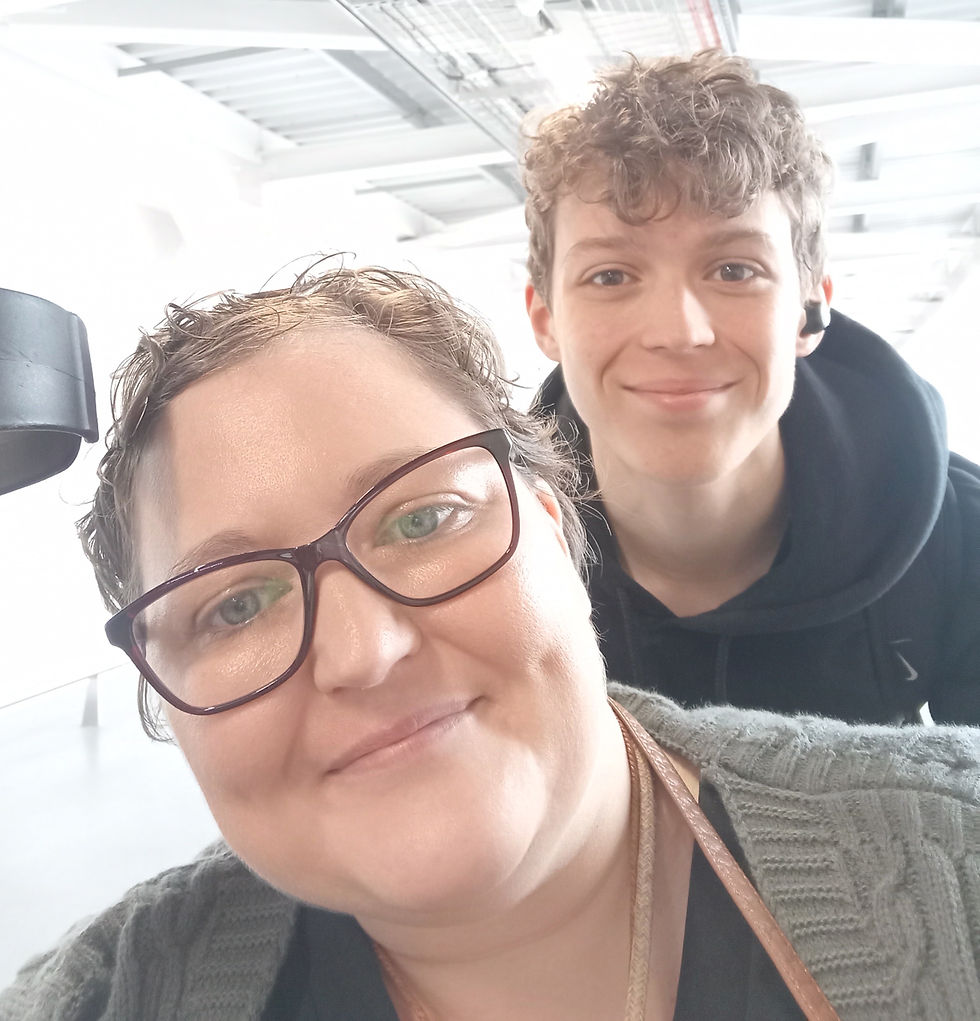Crisis To Diagnosis - Autism
- JuJu
- Sep 16, 2025
- 4 min read
Updated: Oct 31, 2025

As I touched on my stories, we had hit rock bottom at home and I took my youngest to a crisis centre. She was 8. She was in year 3 at school and wanted every day to look the same. Her hair had to look the same, she had to wear the same type of uniform (always trousers, t-shirt and sweatshirt), she had the same things to eat. Her anxiety was through the roof and her mood was so low. She was empty. She didn’t want to carry on living. Like I said, at crisis point.
As a parent I was exhausted at how precise everything had to be and the fall out when things were not, was immense. The crisis centre (#Thrive) got her to fill out a questionnaire and from that recommended counselling. She was offered it just for herself or to include me and her dad. She wanted the family option. We were allotted 6 sessions.
As each session happened we tried to understand where her anxieties were coming from. We tried strategy after strategy and nothing seemed to be working. We were on session 5 and I was vocal again like in all our sessions. I was talking on behalf of her because I felt like I was the one who knew her inside out. She didn’t know why what was happening was happening. I didn’t either but I felt like I knew what it felt like. The counsellor asked me what I wanted to get out of these sessions. I said that I didn’t want her to grow up with the struggles I had. When I was 16, I hit crisis point. I had made some bad choices trying to cope with life and I didn’t want the same for her.

Time To Talk To School
Between sessions 4 and 5, I had a meeting with the class teacher and the head of her school. My daughter believed every word of her teacher and in our house it was as though her teacher was in charge of everything at home as well as school. We even joked that their word was gospel! It felt like it was true. I asked if they could bear this in mind when setting work. For example, if there were 5 tasks set and they were told to do 3, my daughter would do all 5 because she wouldn’t know which ones to pick. The time set for the task was only enough to answer 3, She was failing before she’d even started. We were told she’s quiet, timid, hard working, always aiming to please, but she was very sensitive. They’d noticed if they asked her to move or to sit down it made her upset. Not always to the point of tears but almost. She thought she had done something wrong.
Following that, we had a few talks with the head and she suggested she may be autistic. We researched it more and at our next therapy session we talked about it with them. We went through questions to see if she was suitable for an assessment with CAMHS (Child & Adolescent Mental Health Services). She was. Her behaviours were from birth, not something that had developed over time. Her anxiety had exasperated her traits. She was having meltdowns due to an overwhelm of her sensory system.
We got an appointment with CAMHS but it took a few sessions for them to agree to an assessment. My hubby and I chatted with them a lot about why we thought she was autistic.
Assessment Time
When the day came for the assessment, she went in alone with two staff. She was almost 10 by then and her age meant I couldn’t be in the room with her. All she could remember after the assessment was that they gave her cars to play with but she didn’t know what to do with them. They also gave her a book without words and they told her to “read” the story. She explained that there were no words so didn't know how she was supposed to do that. I think they wanted her to understand what was happening on each page and make up the story. She didn’t know how.

4 weeks later we got a call to come back to see them. Her notes had been to a panel of different specialists and they had made a decision. My hubby sat with my daughter in the waiting room and I went in with one of the staff who had done the assessment and been part of the panel. She said that my daughter was being given an autistic diagnosis. They also diagnosed sensory processing disorder and anxiety disorder. My hubby and daughter were invited into the room and she went through the diagnosis again. She’d wanted to chat to me first to go through things in more detail. We were given paperwork of helplines and courses we could attend to help.
As far as the diagnosis, this was it. We were dismissed from their services and told to contact them if she needed help in the future with her mental health.
We felt relief that we could now access support that could help our daughter, sadness that this wasn’t something that would pass with time and guilt for passing this on through genetics.What happened next was down to us as parents to research, go on courses and figure out how we could make life better for her and for us as a family.
More blogs to follow on how we did this.
JuJu x




Comments